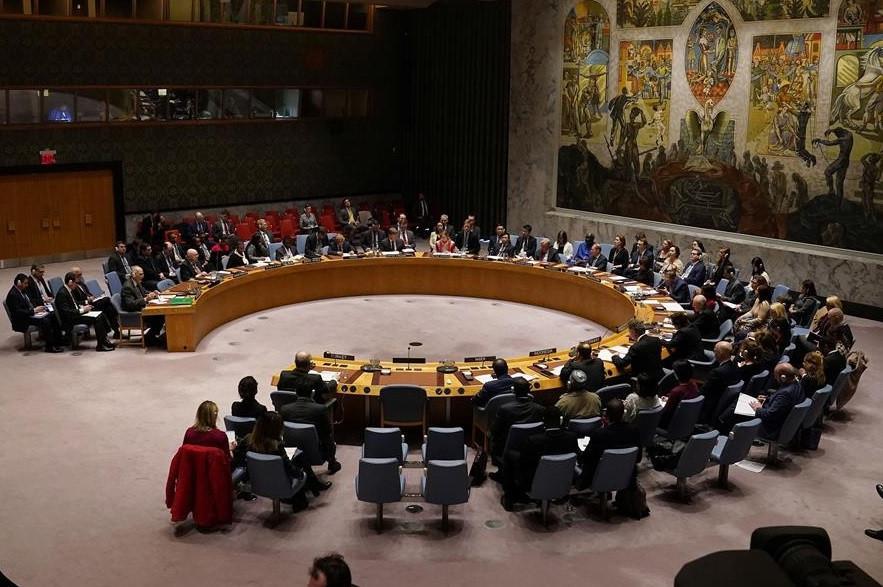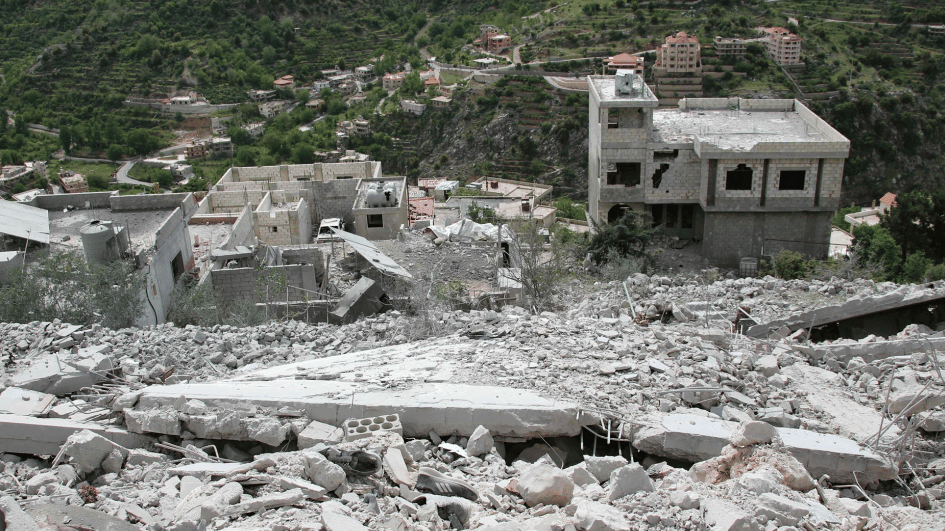Syria war at 'most alarming' phase: UN
UNITED NATIONS-Reuters

The United Nations Security Council meets about the situation in Syria at United Nations Headquarters in the Manhattan borough of New York City, New York, U.S., on Feb. 28, 2020. (REUTERS Photo)
U.N. chief Antonio Guterres on Feb. 28 described an increase in fighting in northwest Syria that killed dozens of Turkish troops as "one of the most alarming moments" of the nine-year-old war and - along with most U.N. Security Council members - called for a ceasefire.
The 15-member Security Council met on Friday after 33 Turkish soldiers were killed by Russian-backed Syrian government troops in the deadliest attack suffered by Turkey's army in nearly 30 years.
Syria's Bashar al-Assad's forces, supported by Russian air power, have been fighting to retake the last large, rebel-held region in Syria after nine years of war. Turkey has sent thousands of troops and heavy military hardware into Idlib region in an unprecedented incursion to back the rebels.
"We call for the Russian Federation to immediately ground its warplanes and we call for all Syrian forces and their Russian backers to withdraw to the ceasefire lines first established in 2018," U.S. Ambassador to the United Nations, Kelly Craft, told the council.
Turkey and Russia gave opposing accounts to the Security Council of what happened.
Russia's U.N. Ambassador Vassily Nebenzia said Turkish troops shared coordinates with Russia, which were then given to Syrian regime's forces, to avoid conflict on the ground. He said Russian warplanes were not providing support in the area where the Turkish soldiers were killed.
"The coordinates conveyed yesterday did not mention the areas where ultimately the Turkish soldiers died," Nebenzia said. "As soon as it became clear that it happened the Russian side took exhaustive measures to cease hostilities and to ensure the safe evacuation of the dead and injured."
Turkish U.N. Ambassador Feridun Sinirlioğlu disputed Nebenzia's account, saying that "radar tracks" showed that the Syrian regime and Russian aircraft were flying in formation during the time of the attack.
"We had prior coordination in writing with Russian forces about the location of our convey and air strikes continued despite our immediate warnings right after the very first attack," he said.
Sinirlioğlu said the Turkish troops were alone in the area and "the logical conclusion of that is that they were deliberately attacked." He said Turkey did not want war but would not hesitate to use force if its security was threatened.
"It is time for this Council to say 'enough is enough.' The council has to stop [the] regime's 'war crimes and its reckless behavior that pose [a] threat to international peace and security," he said.
Turkey is acting in Syria on behalf of the international community to protect millions of Syrians, he added.
Sinirlioğlu urged the international community not to remain indifferent to developments unfolding in Idlib. "Otherwise there will be [a] repercussion of much wider scale across Europe, region and the beyond," he warned.
Craft urged Guterres to do everything in his power to broker a ceasefire, saying "the U.N. must play a central active role if we are to avoid even greater escalation."
Ahead of the Security Council meeting, Guterres called for an immediate ceasefire "before the situation gets entirely out of control," adding that: "Civilians are paying the gravest price ... And the noose keeps tightening, as the frontlines reach more densely populated areas."
Nearly a million Syrians have fled over the last three months, the biggest exodus of the conflict. A crackdown by Assad on pro-democracy protesters in 2011 led to civil war.
Senior U.N. officials dealing with the humanitarian situation in northwest Syria on Feb. 27 appealed for help from the 15-member Security Council, which has long been divided on how to deal with Syria. Russia had vetoed 14 draft resolutions during the war.
















